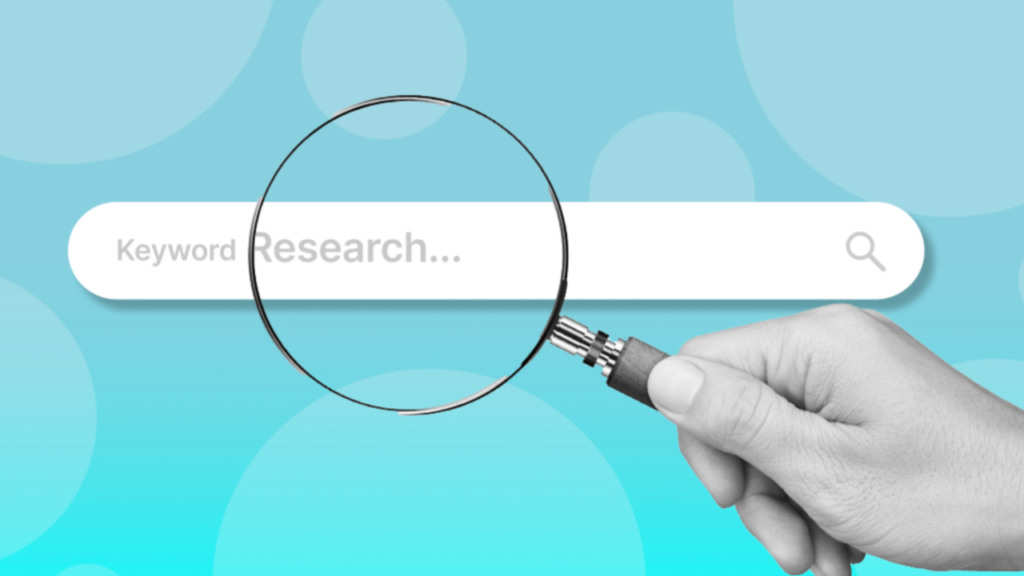Ready to take your SEO game to the next level? Imagine a world where your website not only ranks higher but anticipates user needs. Enter SEOJust – your digital co-pilot in this exhilarating journey. Today, we dive into the future of SEO with cutting-edge AI software.
From turbocharging keyword research to crafting content with finesse, we’re here to demystify the magic behind SEO AI. Buckle up; the era of personalized, AI-driven SEO strategies is here, and SEOJust is your ticket to digital greatness.
SEO AI Software | An Overview

SEO AI software utilizes artificial intelligence to automate and improve search engine optimization (SEO) strategies. AI-powered tools analyze websites, content, and search metrics to provide data-backed recommendations to boost organic traffic and rankings.
The evolution of AI in SEO has transformed strategies and workflows. In the early 2010s, basic machine learning was incorporated into SEO tools to analyze backlinks and provide keyword suggestions. By the mid-2010s, Google’s RankBrain algorithm leveraged primitive AI to interpret search intent better. In the late 2010s, advanced deep learning AI emerged to fully automate on-page optimization, content creation, link building, and other tasks.
SEO AI software represents the leading edge of this progression, as algorithms rapidly improve to match or exceed human-level strategy. AI promises more efficient, insightful, and effective SEO scaled across entire websites and campaigns. While human guidance remains essential, AI augmentation handles rote SEO workflow to free up time and energy for higher-level oversight and strategic planning.
The next decade will likely see SEO AI mature from narrow task-based tools into general AI systems capable of formulating entire search strategies. This technology holds the potential to transform digital marketing by optimizing organic growth. However, it also poses risks if used improperly or without human ethics and oversight. Responsible development and use of SEO AI will be key.
Also Read: Video SEO Company: The Ultimate Video SEO Solution
Key Features of SEO AI Software

SEO AI software utilizes artificial intelligence and machine learning to automate and enhance key aspects of search engine optimization. Here are some of the most notable features:
Keyword Research
- SEO AI tools can analyze massive datasets of keywords to identify high-value, low-competition terms that align with target searcher intent. This helps generate more relevant topics and content ideas.
- They apply predictive analytics to forecast keyword difficulty and volume over time. This enables more informed keyword selection.
- AI takes over tedious keyword research tasks like grouping semantically related keywords, identifying questions people are asking, and discovering long-tail variations.
Content Optimization
- AI content tools can generate SEO-friendly outlines and drafts using natural language generation. They consider optimal word count, keyphrase placement, headings structure, media optimization, and more.
- These tools provide predictive recommendations to improve the readability, engagement, and search visibility of existing content.
- Some feature sentiment analysis to ensure content strikes the right tone and emotion for targeted audiences.
Link Building
- Link-building AI can identify and evaluate millions of prospective link sources to focus outreach on the ones most likely to convert.
- These tools even automate personalized, multi-channel outreach campaigns at scale.
- They apply machine learning to optimize messaging and improve link conversion rates over time.
Site Audits
- AI site auditors crawl websites to perform detailed technical SEO analyses, identifying issues to fix or improve.
- They deliver prioritized recommendations to maximize search visibility and performance.
- Some even generate fixes and improvements automatically or provide action plans.
Rank Tracking
- AI rank trackers continuously monitor website positions across search engines for any number of keywords.
- They apply data science to forecast future ranking trajectories based on historical patterns.
- Features like anomaly detection identify unusual ranking changes needing investigation.
- These tools provide shareable reporting and visualization of rankings.
Advantages of Using SEO AI Software
Using AI for SEO provides several key advantages:
- Save time and effort – SEO AI can automate repetitive and time-consuming tasks like keyword research, content optimization, link-building outreach, and more. This allows SEO teams to focus their efforts on higher-value strategy and planning.
- Data-driven insights – SEO AI tools can process huge amounts of data from across the web and uncover insights that would be impossible for humans alone. This empowers SEO experts to make data-backed decisions.
- 24/7 optimization – With AI constantly monitoring metrics and making recommendations, websites can be optimized around the clock. This level of ongoing refinement isn’t feasible with manual efforts alone.
- Increase productivity – By handling routine SEO busywork, SEO AI enables teams to get more done in less time. They can take on more projects and campaigns.
- Identify new opportunities – Powerful AI can surface profitable keywords, high-potential backlinks, issues with site architecture, and more. This reveals optimization opportunities that may have otherwise been missed.
Challenges and Considerations

AI SEO software can offer significant benefits, but it also comes with some potential challenges and considerations:
- Heavy reliance on technology: SEO AI relies heavily on algorithms and technology to generate content and recommendations. This removes some human oversight and control. Companies must ensure the technology works correctly to avoid issues.
- Potential quality issues: While AI can create content quickly, the quality may not match human-written content. The writing can be stilted or lack nuance. Careful vetting is required.
- Limited creativity: AI lacks human creativity and innovative thinking. The content and recommendations may be technically sound but not groundbreaking.
- High costs: SEO AI software requires significant investment. The costs may outweigh the gains for smaller companies with limited budgets.
- Integration difficulties: Incorporating SEO AI into existing workflows and content strategies can prove challenging. Extensive testing and adjustment is required.
Use Cases
Agencies
SEO AI software provides significant benefits for digital marketing and SEO agencies. It allows agencies to scale their operations and take on more clients without drastically increasing overhead costs. By automating repetitive tasks like keyword research, content creation, link-building outreach, and technical SEO audits, agencies can free up employees to focus on higher-value strategic work.
AI tools can also help agencies deliver more consistent quality work to clients. Automated tools apply algorithms consistently across projects, reducing mistakes from manual processes. This helps agencies maintain quality standards across a large number of client accounts.
In-House SEO Teams
For in-house SEO teams, AI software helps them accomplish more with smaller headcounts. Automation enables small corporate SEO teams to manage large websites without outsourcing significant work. It also allows them to scale campaigns up or down as needed.
AI tools also provide data to demonstrate the ROI of SEO to other departments. With trackable metrics around traffic, rankings, and conversions, SEO teams can showcase the value of their work.
Content Creators
SEO AI tools help content creators and writers research topics, generate content ideas, and produce drafts faster. This increases productivity and allows creators to focus their time on higher-value tasks like editing and optimizing copy.
Automated grammar checks, tone adjustments, and text summarization features also help polish drafts faster. This improves efficiency in the content creation process.
Website Owners
Small business owners and solopreneurs can benefit from SEO AI tools without needing advanced technical skills. The automation makes SEO more accessible for non-experts.
For example, site audit features identify technical problems to fix. Content creation tools provide well-optimized pages and blog posts. All this helps small website owners improve their SEO and get found more easily by their target customers.
Notable Companies
AI and machine learning have become integral parts of many popular SEO tools. Here are some of the most notable companies utilizing AI and ML in their SEO software and platforms:
Moz
Moz was one of the first companies to implement AI and ML into its SEO tools. Moz uses machine learning for its Keyword Difficulty tool to predict how hard it will be to rank for a given keyword. It also uses ML and natural language processing in its Content Ideas tool to generate semantic keyword recommendations.
Ahrefs
Ahrefs incorporates machine learning across its product suite, including its Keyword Generator, Content Explorer, and Site Audit tools. It leverages AI to provide more accurate and helpful data to users. The Keyword Generator tool uses ML to suggest semantically related long-tail keywords.
SEMrush
SEMrush was an early adopter of AI for SEO. It uses ML algorithms to power many of its features, like its Keyword Magic Tool, Topic Research, and Content Marketing Toolkit. SEMrush trains its AI models on billions of data points to improve insights over time.
Searchmetrics
Searchmetrics uses AI and ML extensively throughout its suite. The Searchmetrics AI-powered SEO platform includes AI Ranking Factors, a Content Ideas generator, and Semantic Ranking simulations to help optimize pages. It uses ML techniques like natural language processing, graph analysis, and deep learning.
BrightEdge
BrightEdge incorporates AI and ML into its BrightEdge Autopilot platform. The company has filed over 15 patents related to AI/ML analysis for SEO and content. BrightEdge uses NLP and data science techniques to optimize on-page content, improve rankings insights, and enhance its correlation analysis.
Pricing
SEO AI software is available under different pricing models to suit the needs and budgets of various users and organizations. Here are some of the common pricing options:
Monthly Subscriptions
Many SEO AI tools offer monthly subscription plans that allow you to access the software on a recurring basis. Monthly fees typically range from $50 to $200+ per month based on the features included. Some providers offer different subscription tiers with increasing capabilities and limits at higher price points.
Annual Subscriptions
Annual subscriptions are available at discounted rates compared to equivalent monthly plans. Annual commitments range from around $500 to $2000+ for enterprise-level tools. Locking in for yearly terms often provides savings of 10-30%.
Custom Enterprise Plans
Large companies can get custom pricing for SEO AI software by contacting sales teams directly. Enterprise plans allow for higher usage limits, additional features, personalized onboarding and support, and more. Quotes are provided based on unique needs and can be in the thousands per month for extensive deployments.
Free Trials
Many SEO AI platforms offer free trials for 7-14 days so users can test out the software before subscribing. Trials are fully featured but have limits on usage and credits. They allow assessing the tool’s capabilities before committing. Converting from a free trial to a paid plan is seamless in most cases.
Per-Use Credits
Some SEO AI tools have credit-based pricing, where you purchase packs of credits and consume them as you use the software. Each tool action costs a set number of credits. This provides flexibility for varied usage levels each month. Credits can range from $100 for 1000 to $1500 for 10,000.
The wide range of pricing options allows companies and individuals to use SEO AI software cost-effectively for their specific needs and scale. Comparing plans across tools is recommended to get the best value.
Also Read: Maximizing Online Presence: The Role of a Social Media Optimization Company
Implementation Tips

When implementing SEO AI software, here are some key tips to ensure successful adoption:
- Start with clearly defined goals. Have a clear understanding of why you are implementing SEO AI and what specific goals you want to accomplish. This will help guide configuration and measure success.
- Integrate with existing tools. Most SEO AI software can integrate with popular SEO, marketing, and analytics tools. Leverage these integrations to maximize value.
- Training and support. Allow time for training staff on using the software. Take advantage of vendor support and education resources. Getting team members onboard is crucial.
- Evaluate performance. Track relevant metrics pre and post-implementation to evaluate the SEO AI software’s impact and ROI. Common metrics include rankings, traffic, conversions, and revenue.
- Iterative adjustments. SEO AI models improve over time with more data. Expect to make ongoing tweaks and adjustments to the software, workflows, and configurations for optimal results. Monitor changes and keep optimizing.
- Start small and scale up. Consider starting with a limited site migration or a subset of keywords to validate the technology and processes before expanding. Take an incremental approach.
- Use intelligently. While SEO AI can automate many optimization tasks, it still requires human guidance and supervision for the best outcomes. Utilize the software as an aid, not as a complete replacement.
- Customer support integration. For customer-facing SEO AI tools, provide quick access to human agents to handle complex inquiries the AI cannot address. Blend AI and human support seamlessly.
- Evaluate risks. Occasionally, SEO AI-generated content or recommendations may seem unnatural or ethically questionable upon review. Have workflows in place to catch potential issues.
By setting clear goals, integrating well, providing training, iteratively optimizing, and applying human oversight, you can successfully implement SEO AI software for your business. Start small, learn, and improve over time.
Also Read: Driving Sales: Automotive Search Engine Marketing Strategies
Future Outlook

The use of AI in SEO is expected to continue growing and advancing as the technology develops further. Here are some key trends we can expect to see in the future of SEO AI:
- Continued adoption of AI in SEO: As AI capabilities improve and these tools demonstrate proven value for SEO, adoption will likely increase. More SEO professionals will integrate AI tools into their workflows.
- More sophisticated algorithms: AI algorithms focused on SEO will become more advanced, complex, and capable of analyzing more data signals. This can lead to more nuanced analysis and insights.
- Integration across marketing channels: AI tools for SEO will likely expand to support other marketing channels like paid search and social media. This allows for optimization across channels.
- Natural language processing advances: Improvements in NLP will allow SEO AI to understand search intent and semantic similarities better. This can improve content optimization and map keywords to content.
- Generating unique content at scale: AI-powered writing tools will continue improving, allowing for the fast creation of large volumes of SEO-optimized unique content. This can scale content production.
As AI capabilities grow, SEO professionals can expect SEO AI tools to become even more capable and valuable. Companies will need to continually evaluate new solutions and integrate them into existing SEO strategies and workflows. The human guidance, critical thinking, and expertise of SEO professionals will remain essential even as the technology progresses.
FAQs
What is SEO AI software, and how does it differ from traditional SEO tools?
SEO AI software employs artificial intelligence to automate and enhance various aspects of SEO, such as keyword research and content optimization, providing a more advanced and efficient solution compared to traditional tools.
How can SEO AI software benefit my website’s search engine rankings?
SEO AI software streamlines tasks like keyword optimization, content creation, and on-page SEO, ensuring your website aligns with the latest search engine algorithms. This results in improved rankings, increased visibility, and better organic traffic.
Is SEO AI software suitable for small businesses, or is it more geared towards larger enterprises?
SEO AI software is designed to be scalable and adaptable, making it beneficial for businesses of all sizes. Small businesses can leverage its automation features to enhance their online presence without extensive resources.
Does using SEO AI software mean sacrificing the human touch in SEO strategies?
No, SEO AI software complements human expertise. While it automates certain tasks, human input remains crucial for strategy development, content quality assessment, and adapting to unique business needs.
How frequently should I update my SEO AI software to stay relevant to search engine changes?
Regular updates are essential to ensure your SEO AI software adapts to evolving search engine algorithms. Providers often release updates to enhance features, address security concerns, and stay in sync with the dynamic SEO landscape.
Conclusion
Excited to revolutionize your SEO game? SEOJust is your trusted ally in the digital landscape. Let’s embark on a transformative journey together! Reach out to SEOJust today, and let’s tailor an AI-driven SEO strategy that propels your brand to unparalleled heights. Click now to turn your SEO dreams into a digital success story!




